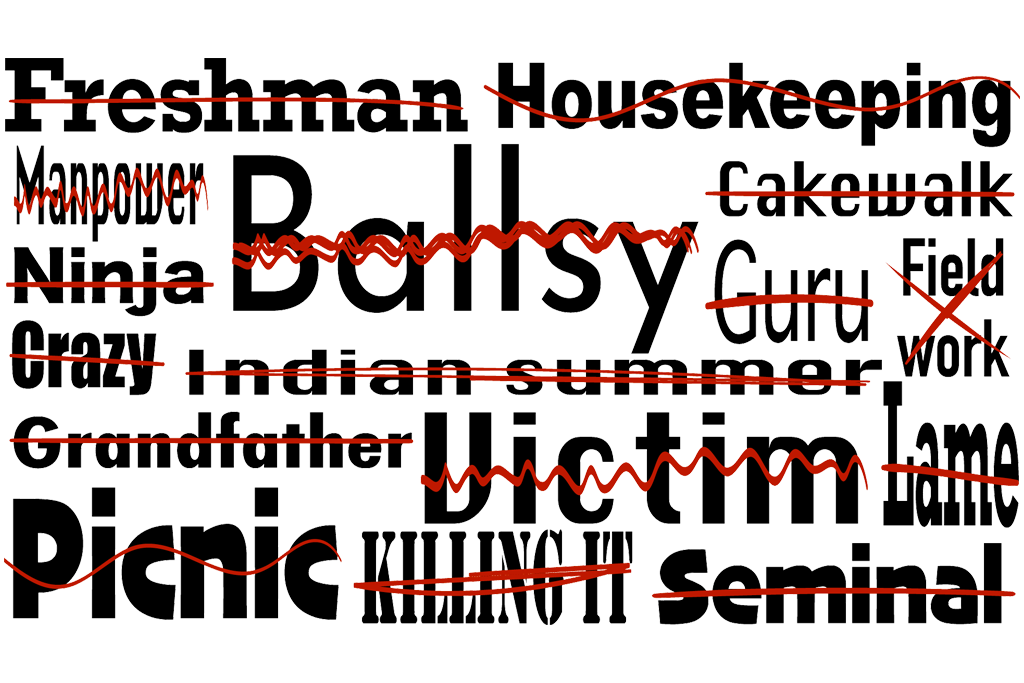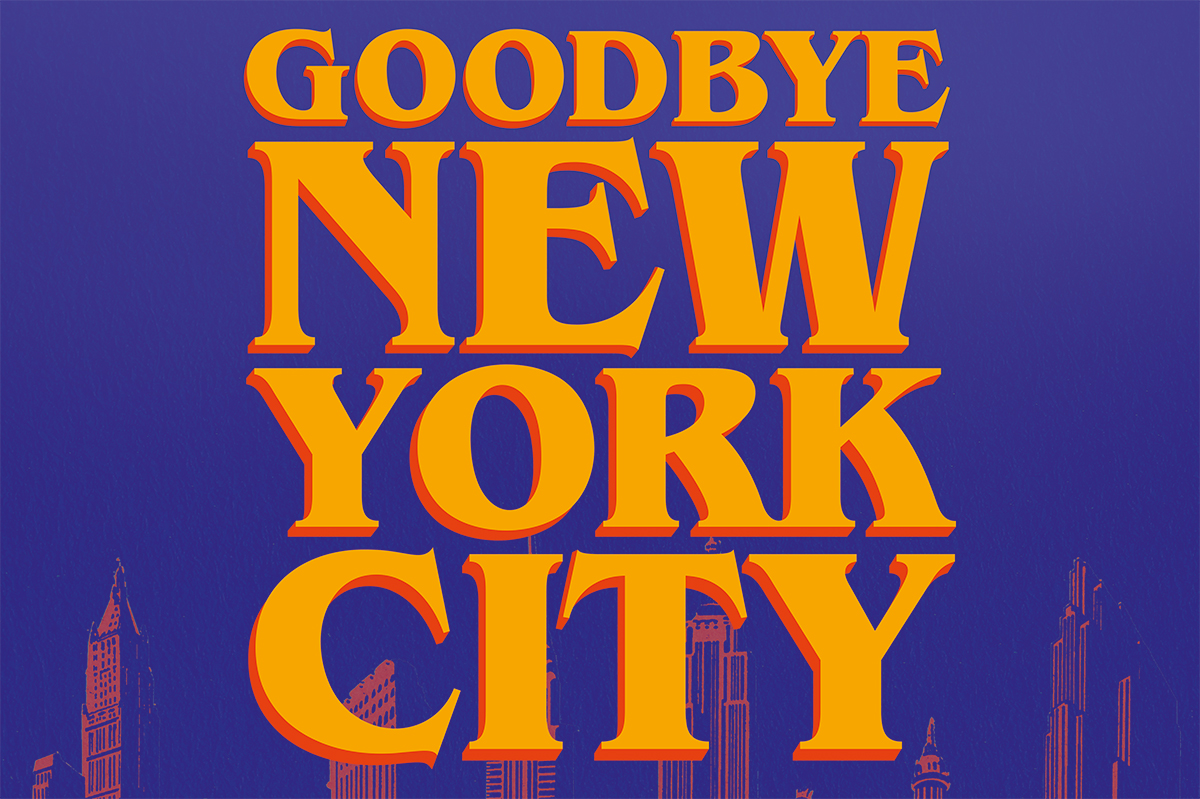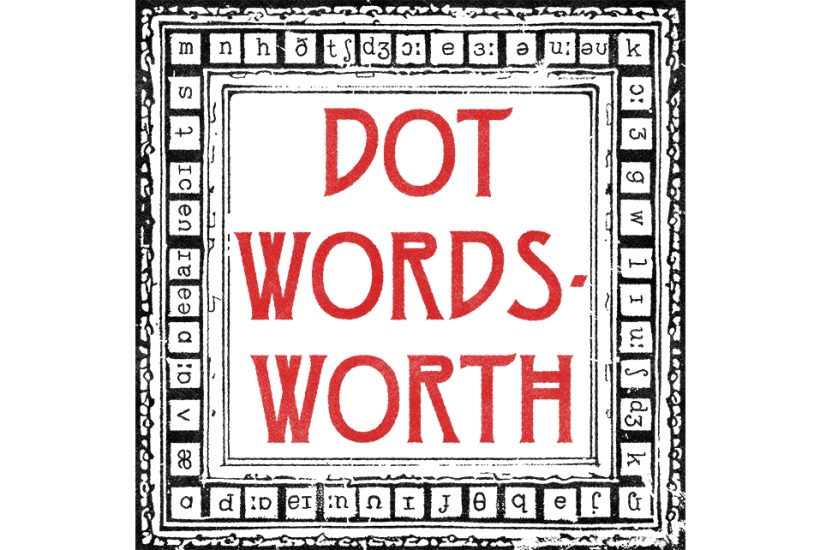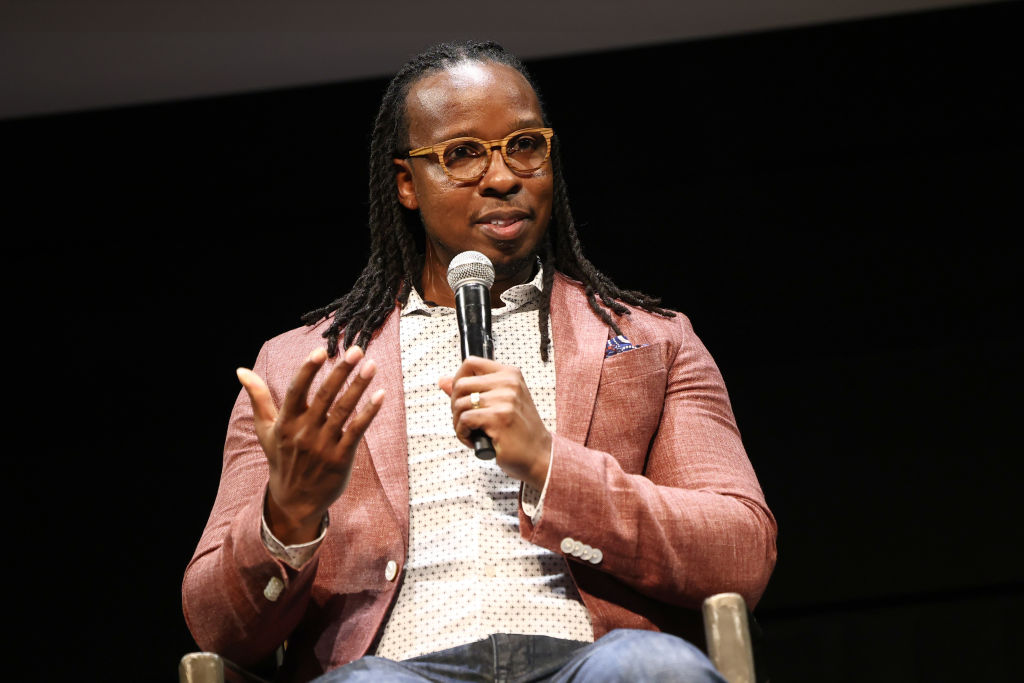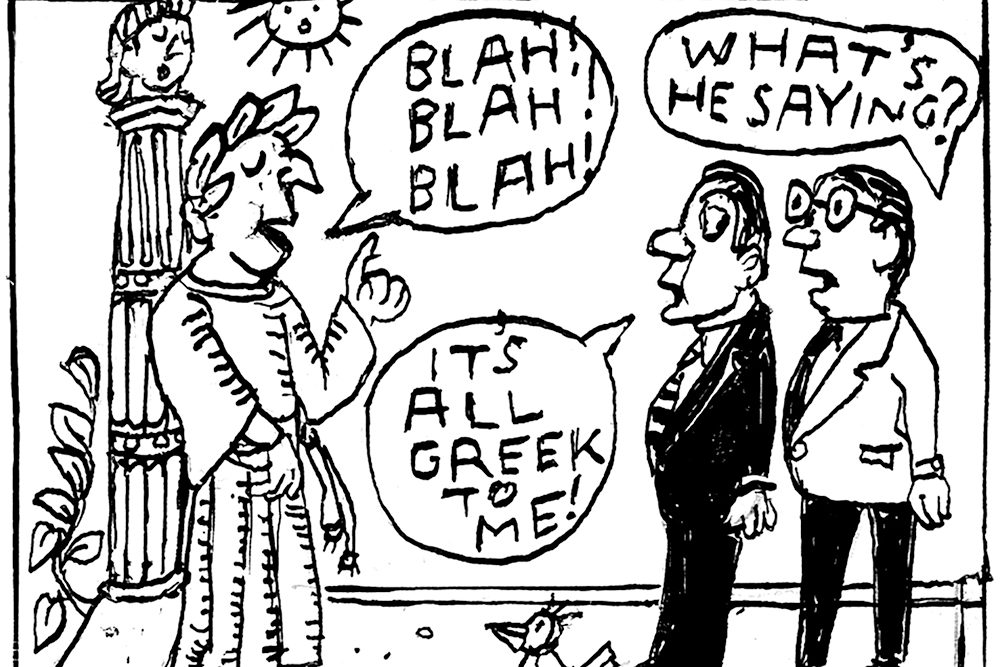The University of Washington technology department has banned the word “housekeeping.” Not because the “problematic” noun is overtly ist (ableist, sexist, racist, ageist…; by now, you must know the ist list). No, because it “feels gendered.” Would that they’d simply banned housekeeping. I hate scrubbing the shower.
This month, the University of Southern California’s School of Social Work proscribed the word “field.” “Field work” might have unpleasant connotations for the descendants of slaves. (Sorry! Descendants of “enslaved people.” Nouns that reference persons — like, you know, “doctor” — are reductive and dehumanizing.) A ‘”ield of study” is henceforth a “practicum.” Presumably we’ll now protect corn crops from “pasture mice” and the British army’s highest rank will be a “meadow marshal.” What about Matthew 6:28? “And why do you worry about clothes? See how the flowers of the practicum grow. They do not labor or spin.”
Righteous, underemployed academic mischief-makers once occupied themselves with euphemism churn: we’ve no sooner biddably started calling black people in the US “African-Americans” than we’re informed that hyphenation is “othering” and we’re meant to employ the jagged acronym BIPOC instead — which sounds like a disfiguring disease. But lately, these strong-arming semantic scolds are keener on simply smashing to smithereens whole flights of freshly verboten vocabulary, the linguistic equivalent of clay pigeon shooting.
So if you think you’re modern for having registered that “gyp” is rude, you’re way behind the times. “American” is rude; only “US citizen” will do. “Seminal” is sexist. “Ballsy,” alas, “attributes personality traits to anatomy.” Forget “lame,” lest you “trivialize” the experience of the disabled — yikes! — I mean, people living with disabilities. Why, speaking of lame, Stanford University’s Elimination of Harmful Language Initiative released its recommendations in December. Our compendium of terminological traif runs to thirteen pages. After plowing through this whole po-faced document, whose philological massacre would erase the very history it feigns to respect, I was dismayed to learn that I can’t even “commit suicide” any more.
Much as we can now only have pretzels on planes, we can’t play to the “peanut gallery,” either, as it refers to “the cheapest and worst section in theaters where many Black people sat during the Vaudeville era.” Prefer “audience,” which doesn’t mean the same thing, but never mind, because clear communication is these folks’ least concern. Also of no importance: eloquence, lucidity and concision. A “guru” is rather a “subject matter expert” or, more snappily, an “SME.” The goal of these worthies? We all write as badly as they do.
“Killing two birds with one stone” and asserting “there’s more than one way to skin a cat” will consign you to the naughty step, as both expressions “normalize violence against animals.” Exclaiming “I killed it!” about your presentation at work is sure to make your mates blanch. (Whoops! The UK Home Office has banned the word “mate,” for reasons unexplained; perhaps white men found supremacist solidarity in the term.) Come now, “doing a good job should not be equated with death.” “Killing it” could “also be triggering if someone close to the recipient actually was killed.”
That was a weird slip on the EHLI’s part, for elsewhere in the document “triggering” is also exiled to the cornfield — um, cornland — because “triggering” is, well, triggering. Indeed, one of the delights of this wholesale lingual slaughter is that the wokies are starting to ban their own jargon. All those brave rape survivors and cancer survivors? They’re now persons “who have experienced” or “have been impacted by” whathaveyou. “Preferred pronouns” is out; astonishingly, “people of color” is out; bloody hell, “victim” is out! And “victim” is one of the identitarian crowd’s favorite words!
Hue is altogether dodgy. Regardless of innocent etymology, black-anything has been binned: blackball, black sheep, blacklist, black box… Any day now, fear of the dark will constitute a hate crime. Thank God we rarely have “blackboards” any more, except “whiteboards” must be nixed as well if they’re seen remotely as an improvement. White hat, white paper? Chucked. Red is bad (Indigenous peoples). Yellow is bad (Asians). The only primary color we’re left with is blue — as in “feeling blue,” because the pages of your dictionary now look like those lacy paper snowflakes children snip at Christmas.
Wild factual inaccuracy doesn’t bother these feverish censors in the slightest. Progressives recently raised a ballyhoo about “nitty-gritty,” which first ostensibly meant the dreadful detritus left behind in the bottom of slave ships, a definition so grisly you couldn’t make it up. Except that someone did. The noun didn’t enter the English lexicon until the 1930s. Similarly, the horrifying neo-no-no “call a spade a spade” clearly traces to spade-as-shovel, with zero etymological relationship to spade-as-pejorative. I spent half an hour researching the uncertain origins of “Indian summer,” for which the EHLI insists we substitute “late summer” (doesn’t mean the same thing, but who cares; we’ll soon be so sensitive that we communicate by pointing and grunting). Nowhere did I dig up that a term for a surprisingly agreeable October “infers that indigenous peoples are chronically late.”
Inconsistency doesn’t bother these folks, either. Shunning “straight,” we’re to substitute “heterosexual.” Yet “homosexual” is a “medicalized” word and out the window.
Our minders really tip their misguided hand in their denunciation of “culturally appropriative” expressions, such as “bury the hatchet” or “pow wow.” English is intrinsically “appropriative,” which is why it enjoys by far the largest lexicon of any language on earth. English is greedy. It overcomes the enemy by absorption, like some sort of sponge monster. It’s a voracious tongue that eats foreign jibber-jabber for breakfast. Embrace — theft, even — is its greatest strength. Only “appropriation” has enabled our language to take over the world.
Tragically, since we need to retain at least a pidgin vocabulary to describe the people who concoct this stuff, they’ve even tossed “stupid” on the scrapheap. Instead we’re to describe such specimens as “boring.” Which is st… — start again. Which is on the intellectually deficient side. For s-word people can be highly entertaining, especially when they don’t mean to be.
This article was originally published in The Spectator’s UK magazine. Subscribe to the World edition here.



